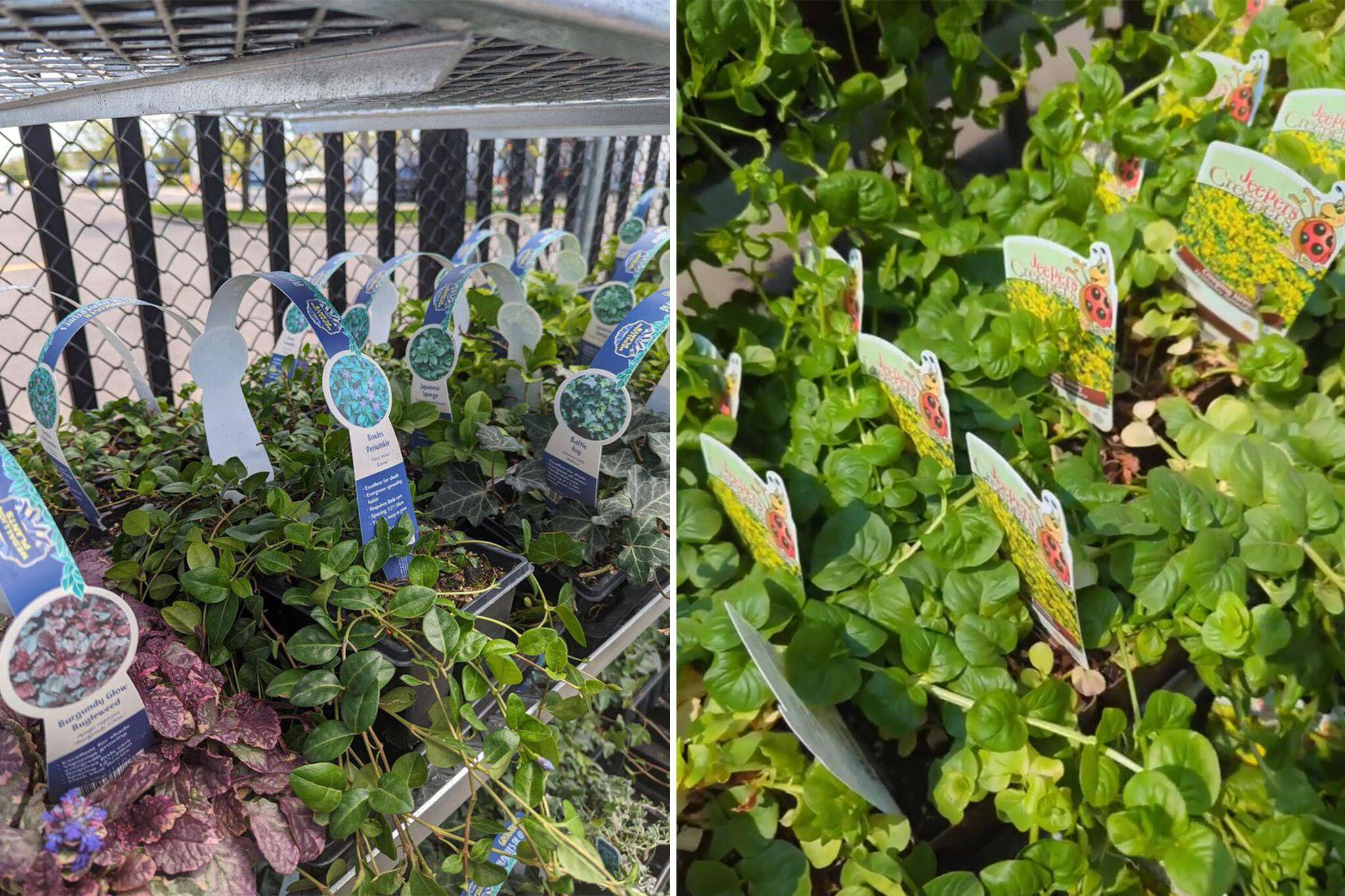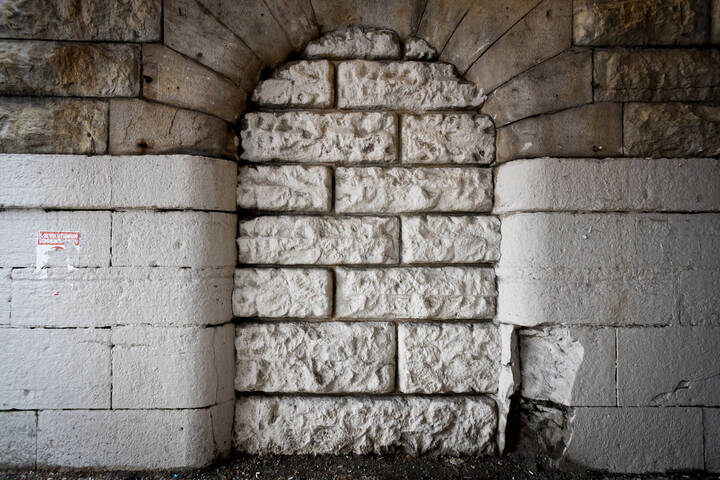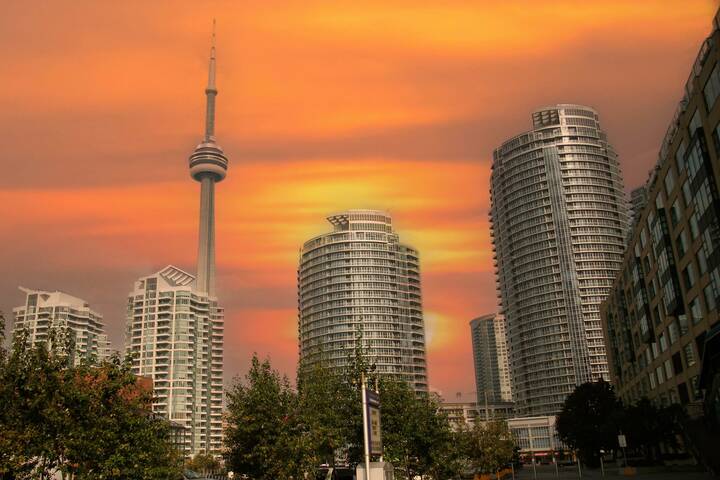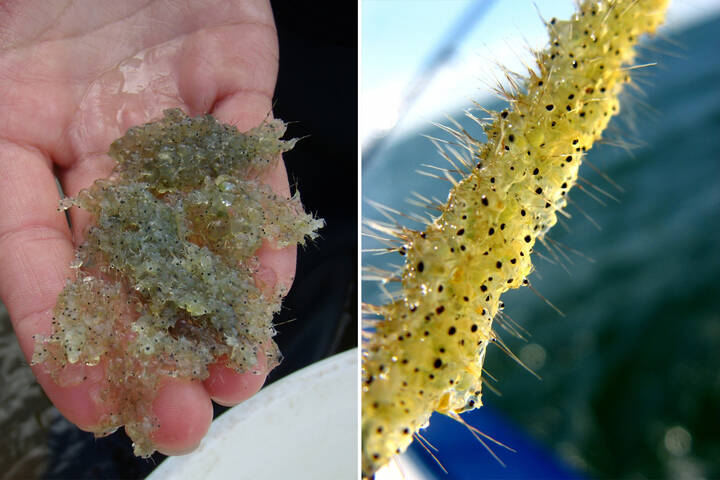
Toronto garden stores are selling dangerous invasive plants and experts are worried
Invasive species can be found growing wild all over Toronto. However, despite posing dangers to local biodiversity, some of these plants remain not only unregulated for sale, but can be found readily available at garden centres across the region.
And with the unofficial start of planting season occurring this May long weekend, experts are very concerned about the further spread of invasive plant species.
It's a problem extending far beyond provincial borders that has experts raising alarm bells, including a group known as the Canadian Coalition for Invasive Plant Regulation (CCIPR), which is pressuring the federal government to enact new legislation that would clamp down on the sale of ornamental invasive plants.
The group warns that the current lack of legislation on plants growing in gardens across the province threatens the country's rich biodiversity, warning that without action, the federal government will fail to meet its 2022 commitment to reduce the rate of introduction and establishment of non-native invasive species by at least 50 percent by 2030.
"Invasive plant species have increased 15 per cent over the last decade, and with climate change, we expect those numbers to continue to rise," said Cathy Kavassalis, co-founder of CCIPR and conservationist.
"We know that invasive plants crowd out native plants impacting our ecosystems, they cause millions of dollars in damage, and in some cases, they affect human health," continued Kavassalis.
"When our native species are displaced, it's not only the plants we lose, but all of the other wildlife that depends on it. This is at the centre of why we're calling for legislation to reduce the sale of ornamental invasive plants."
CCIPR claims that the ornamental/horticultural industry is the "primary pathway for the introduction of non-native invasive plants entering Canada," but current legislation focuses heavily on the agriculture sector, with less scrutiny over plants sold through nurseries and aquarium businesses.
The organization released a white paper last week with six recommendations to government and industry organizations on how to reduce invasive plants in the country.
"There have been various working groups over the last two decades calling for a coordinated approach and pointing out the huge issue invasive species pose to our ecosystems," says Cathy Kavassalis.
"We know New Zealand, Australia, and the EU have all taken steps to address the issue of invasive plants by amending Biosecurity Acts or enacting new legislation. We need something similar in Canada."
On a provincial level, there has indeed been activity toward regulation. The Auditor General of Ontario released a report in November recommending 30 invasive plants for regulation, including the rapidly-spreading Garlic mustard seen throughout the Toronto region.
Invasive plant is clogging up Toronto's natural areas and you can help by eating it https://t.co/YPgght1vt7 #Toronto
— blogTO (@blogTO) May 17, 2023
To make a point of how readily accessible invasive-but-legal plant species are here in the Greater Toronto Area, Candi Jeronimo, a volunteer at CCIPR, travelled to a handful of garden centres in Etobicoke and Mississauga on the hunt for these potential threats to local biodiversity.
What she found probably comes as little surprise to experts on invasive plant species, but may come as a shock to the broader public.
Jeronimo visited four nurseries and garden centres in a single day — a Canadian Tire, Lowes, Loblaws, and Sheridan Nurseries — and found invasive plants for sale at every single location.
Toronto garden centres are selling invasive plants that experts warn could harm local ecosystems - 📹 Canadian Coalition for Invasive Plant Regulation #Toronto pic.twitter.com/uEyn0RXf0L
— blogTO (@blogTO) May 19, 2023
Among the most common offenders, Creeping jenny (Lysimachia nummularia), English ivy (Hedera helix), Japanese barberry (Berberis japonica), Periwinkle (Vinca minor), and Wintercreeper (Euonymus fortunei) were found at all locations visited.
Such easy access to plants capable of harming local ecology was part of the inspiration behind the founding of the CCIPR last year, after a group of frustrated master gardeners decided to investigate the issue of these species being sold in stores.
When asked about its sale of invasive but otherwise legal plants, including creeping jenny, Victoria Mulvale, Director of Marketing at Sheridan Nurseries, contends that "the plant in question is readily available across Ontario," and adds that the company "is committed to not selling any plant that is classified as restricted or prohibited by the Ontario Invasive Plant Council."
Canadian Tire did not respond to an email request for comment.
Canadian Coalition for Invasive Plant Regulation
Latest Videos
Latest Videos
Join the conversation Load comments







